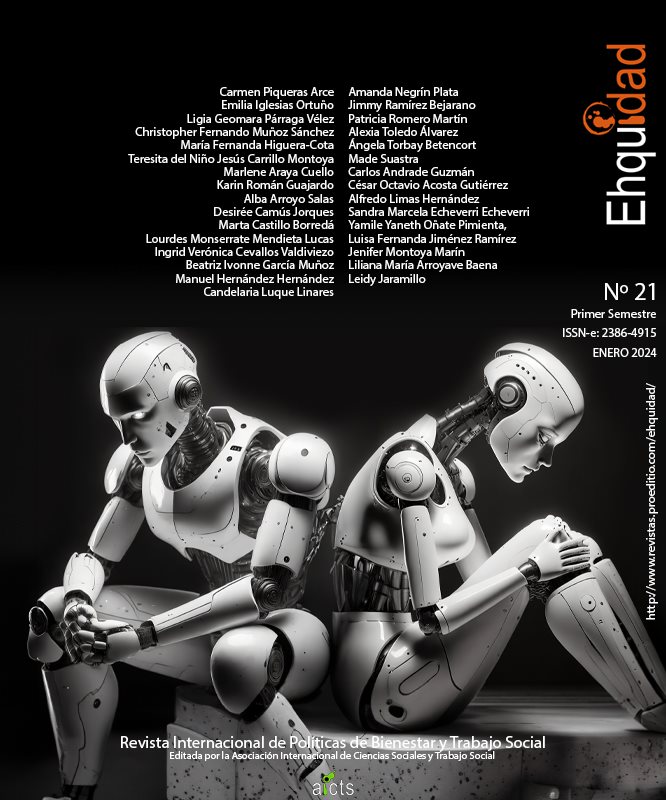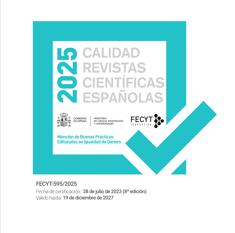Protection and Sustainability of Women Artisans: Empowering, Governance and the Role of Women in the Wayúu Handicraft Supply Chain Through Action Research
DOI:
https://doi.org/10.15257/ehquidad.2024.0010Keywords:
Wayuu crafts, women artisans, sustainable development, supply chains, governanceAbstract
Wayúu women artisans constitute the fundamental pillar of sustaining an important cultural and ancestral legacy of northern South America. This article arises from a research proposal that seeks to promote the economic integration of these women, in the communities of Santa Ana and Cerrodeo (La Guajira, Colombia), with the rest of the actors in the supply chain of Wayúu handicrafts, under a sustainable approach. To achieve this, a sociodemographic characterization of the Wayúu artisan women (with their families) was carried out, likewise, the supply chains of their handicrafts were characterized, and strategies were generated for the possible integration of said women. The methods used were as diverse as the training of the researchers of the interdisciplinary team of social workers and industrial engineers; In this way then, a mixed methodology was used that included both methods of collection and reflective analysis of information given in qualitative research in Social Sciences, as well as more typical analytical and exploratory methods of quantitative research from Industrial Engineering in the management framework of supply chains.
Downloads
References
Afroj, S. (2012). Investigating the Potential to Incorporate Bangladeshi Textile Crafts into a Global Supply Chain. 193
Ballau, R. (2004). Logística. Administración de la Cadena de Suministro. 5? edición. México, Pearson Educación.
Burns, A. L. & Weiner, M. L. (2011). Excellence in global sourcing: what a difference five years makes.
Cámara de Comercio de La Guajira. (2019). Informe socioeconómico del departamento de la Guajira 2019. Cámara Guajira.
https://camaraguajira.org/wp-content/uploads/2020/11/informe-socio-economico-la-guajira-2018.pdf
Duque Cañas, J.P. (2015). La Ranchería de Los Wayúu en la Guajira. Revista Credencial. https://www.revistacredencial.com/historia/temas/la-rancheria-de-los-wayuu-en-la-guajira
Echeverri, M. (2011). La sostenibilidad del turismo rural comunitario en la región amazónica. Un análisis comparativo Colombia – Ecuador. Universidad Andina Simón Bolívar. Quito.
Entrepreneur (2018). Cadena de suministro, qué es y cómo funciona. https://www.entrepreneur.com/es/topic/gestion-de-la-cadena-de-suministro
FENAR Wayúu. (2020). Organizaciones de Artesanos. Artesanías de Colombia.
Hinkelman, E. G. (2005). Dictionary of international trade: handbook of the global trade community includes 21 key appendices, World Trade Pr.
Kunz, G. I., & Garner, M. B. (2007), Going Global. New York, NY: Fairchild.
Lifeder. (2020). Cultura wayuu: origen, ubicación, características, organización, costumbres. https://www.lifeder.com/cultura-wayuu
Makhitha, K. (2015). Supply chain practices and challenges in the craft industry in Gauteng, South Africa. Journal of Applied Business Research (JABR),31(6), 2197-2212.
Mazzoldi, M. (2004). Simbolismo del ritual de paso femenino entre los Wayúu de la Alta Guajira. https://dialnet.unirioja.es/descarga/articulo/4862409.pdf
Mentzer, J. (2001). Defining Supply Chain Management. Journal of Business Logistics, 22(2), 1-25.
Ministerio de Minas y Energía. (2021). Caracterización socio-laboral de las mujeres Wayúu. Departamento de La Guajira, Estrategia territorial para la gestión equitativa y sostenible del sector hidrocarburos. https://repositoriobi.minenergia.gov.co/bitstream/handle/123456789/2476/6129.pdf?sequence=1&isAllowed=y
Naciones Unidas. (1987). Comisión Mundial de Medio Ambiente y Desarrollo. Informe Brundtland.
PNUD. (2018). ODS en Colombia: Los retos para un 2030. https://www.undp.org/es/latin-america/publicaciones/ods-en-colombia-los-etos-para-2030
Totto Brand. (15 de febrero de 2019). Fenarwayuu |Totto [Archivo de Vídeo]. Youtube. https://youtube.com/watch?v=cAG_r99VqhY
Tran, T. H. U., Lau, K. H., y Ong, C. E. (2021). Adoption of social sustainability practices in an emerging economy: Insights from Vietnamese handicraft organizations. Sustainable Production and Consumption, 28, 1204-1215. DOI: 10.1016/j.spc.2021.07.034
UNIDO & UNESCO (2007). Creative industries and micro & small scale enterprise development a contribution to poverty alleviation, UNIDO
Zhang, X., Moorman L. & Ayele, G. (2011). Infrastructure and Cluster Development: A Case Study of Handloom Weavers in Rural Ethiopia. Journal of Development Studies, 47 (12), 1869-1886. DOI: https://doi.org/10.1080/00220388.2011.579112












